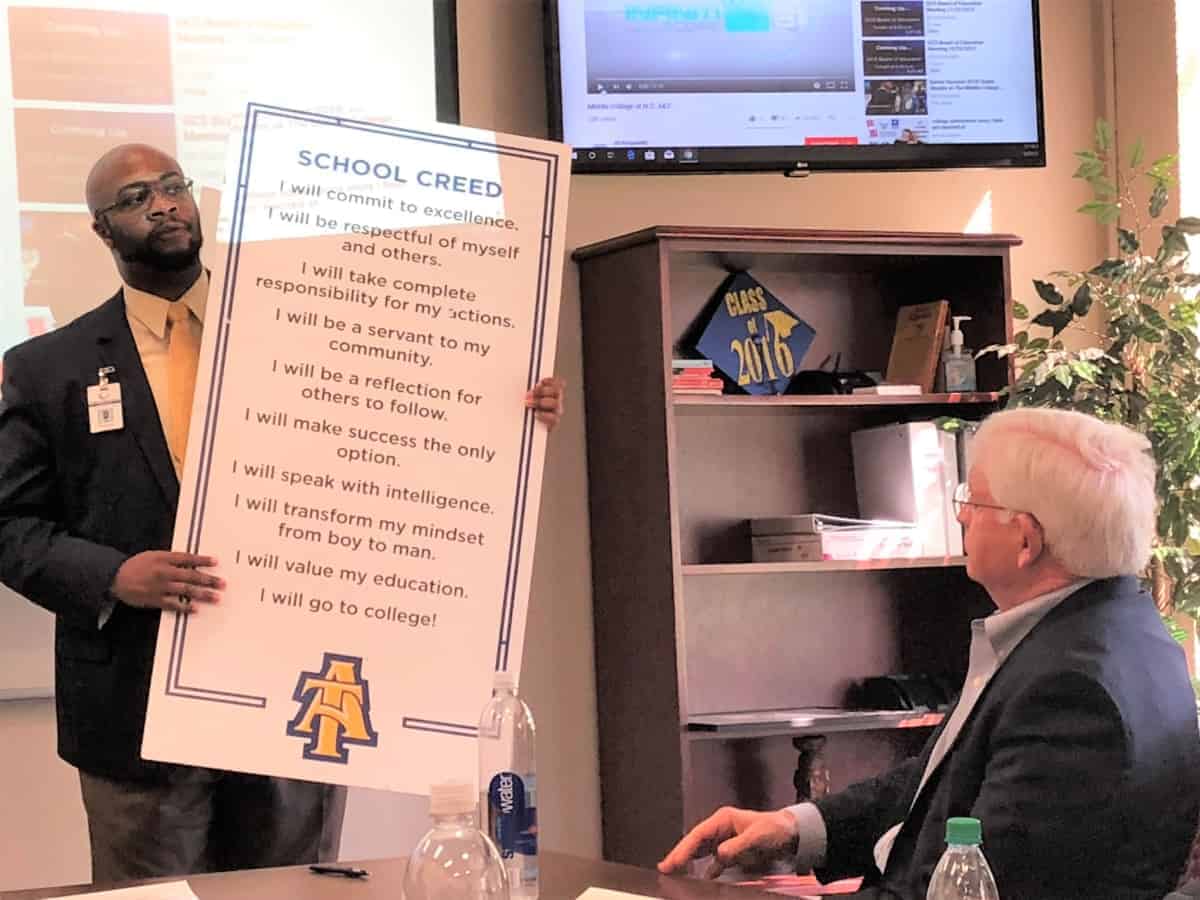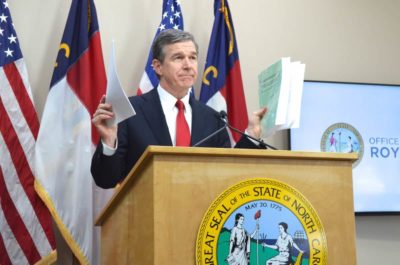

Alexis de Tocqueville didn’t meet Gerry Hancock when he traveled through North Carolina on his nine-month tour of the United States that resulted in the classic two-volume Democracy in America. After all, de Tocqueville visited the U.S. in 1831-32, a century before Gerry was born, but he would have classified Gerry as exhibit A for his chapter on “public associations in civil life.”
Identifying a distinctive feature of how this nation works, the young French aristocrat wrote, “Americans of all ages, all conditions, and all dispositions constantly form associations…religious, moral, serious, futile, general or restricted, enormous or diminutive.” And he went on, “Nothing, in my opinion, is more deserving of our attention than the intellectual and moral associations of America.”
This evening, Gerry Hancock receives well-deserved recognition for enriching the civil life of North Carolina through his founding and nurturing of an array of nonprofit associations. The North Carolina Justice Center honors Gerry as one of its Lifetime Champions of Justice.
As chairman of the EducationNC board, Gerry brings to our work the wisdom born of his experiences. He and I co-founded this news-and-policy nonprofit enterprise, which will soon celebrate its fifth-year anniversary. He asks probing questions, pays attention to details, gently guides CEO Mebane Rash and her team — and, with his ethical compass constantly in working order, regularly reasserts our core values and mission as EdNC expands in size and scope.
I first met Gerry, as I recall, in the early 1970s, when he was a lawyer-lobbyist for Common Cause on legislative reform issues such as electronic recorded votes. He and I spent a recent morning in conversation about his career in his downtown Raleigh office, where hang portraits of a young Franklin D. Roosevelt and a crusty Winston Churchill, along with an antique map of London and a print of the UNC-Chapel Hill campus.
His first venture into association creation came when then-Duke University President Terry Sanford hired him as his assistant in the development of the Southern Growth Policies Board. Five years later, he collaborated with former Sanford aides Tom Lambeth and Joel Fleishman, and the late Bob Spearman, an attorney, in establishing the N.C. Center for Public Policy Research, which now is part of the EducationNC cluster of nonprofits and initiatives.
Beginning in 1980, Gerry served two terms as a Democratic state senator. Out of that experience arose his initiatives in setting up the North Carolina Biotechnology Center and the Public School Forum of North Carolina.
When I asked what lessons he drew from his association creation, Gerry responded with the famous quote from anthropologist Margaret Mead who said, “Never doubt that a small group of thoughtful, committed citizens can change the world: indeed, it’s the only thing that ever has.” And he added his own advice to North Carolinians: “Don’t underestimate what you can do, but never think you can do it by yourself… Become active, become knowledgeable, and don’t give up.”
In the early 1990s, Gerry became general counsel to a consortium of low-wealth school districts. When five districts decided to initiate what became the Leandro case, it was Gerry who recommended his friend Spearman as the lead attorney. He recalled how timely research by the N.C. Center and the Public School Forum, as well as in-depth articles in The News & Observer, provided a huge body of evidence in building a case.
Twenty-five years after Leandro first was filed, Gerry’s don’t-give-up attitude is reflected in his anticipation of the upcoming public release of a report prepared by national education consultants, WestEd, for Superior Court Judge David Lee.
“We’ll shortly have,’’ Gerry said, “I think what no other state has had – which is the most comprehensive study of a state’s education system that’s possibly ever been done.” Then, he said, what to do will be the “people’s decision’’ as interpreted and implemented through both public officials and the nonprofit associations that make up our democratic society.
No North Carolinian has strived more diligently and persistently than Gerry Hancock to establish and build the array of civil associations needed for the work ahead of us, work that is necessary to ensure a knowledgeable public motivated to enhance the lives of young people through quality education.
“I confess to a sense of urgency,” Gerry tells Mebane and the EdNC team often. “Children have only one time in their lives to be educated, and that time for our children is now.”


